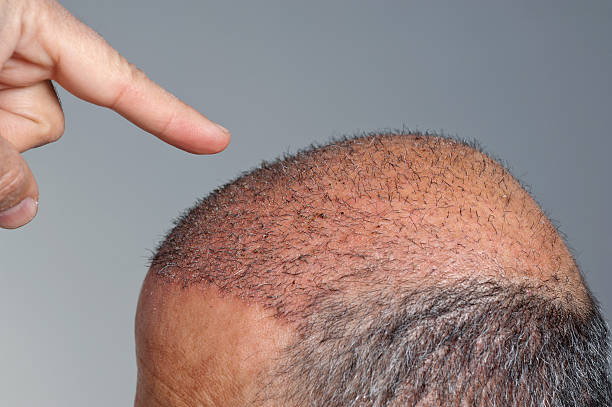Decoding Anxiety: From Brain Chemistry to Breakthroughs
Anxiety, a pervasive mental health condition, affects millions worldwide. This complex disorder manifests in various forms, from generalized anxiety to specific phobias. Its impact stretches far beyond mere worry, often disrupting daily life and relationships. Recent advancements in neuroscience have shed light on the intricate brain mechanisms underlying anxiety, paving the way for innovative treatments. As society grapples with increasing stress levels, understanding anxiety has become more crucial than ever. This article delves into the multifaceted nature of anxiety, exploring its neurobiological roots, societal implications, and cutting-edge approaches to management and treatment.

Neurotransmitters, the chemical messengers of the brain, also play a crucial role in anxiety. Gamma-aminobutyric acid (GABA), for instance, acts as the brain’s primary inhibitory neurotransmitter, helping to calm neural activity. Imbalances in GABA levels have been linked to increased anxiety. Similarly, serotonin, often associated with mood regulation, influences anxiety levels. Many anxiety medications target these neurotransmitter systems to alleviate symptoms.
Recent research has also highlighted the role of the default mode network (DMN) in anxiety disorders. This network, active when the mind is at rest, has been found to be hyperactive in individuals with anxiety, potentially contributing to excessive worry and rumination.
Evolutionary Perspectives on Anxiety
From an evolutionary standpoint, anxiety served as a crucial survival mechanism. Our ancestors’ ability to anticipate and respond to potential threats increased their chances of survival. This “better safe than sorry” approach, hardwired into our brains over millennia, helped our species navigate dangerous environments.
However, in the modern world, this ancient survival mechanism often misfires. The threats we face today are often more abstract and long-term, such as financial worries or social pressures. Our brains, still primed to respond to immediate physical dangers, can struggle to distinguish between real and perceived threats, leading to chronic anxiety in situations that don’t warrant such intense responses.
This mismatch between our evolutionary programming and modern environments presents a unique challenge in managing anxiety. Understanding this evolutionary context can help in developing more effective coping strategies and treatments that work with, rather than against, our innate tendencies.
The Social Dimension of Anxiety
Anxiety disorders do not exist in a vacuum; they are deeply intertwined with social and cultural factors. In recent years, there has been a growing recognition of how societal pressures, technological advancements, and cultural norms contribute to the prevalence of anxiety.
Social media, for instance, has introduced new dimensions to anxiety. The constant comparison with others’ curated lives, fear of missing out (FOMO), and exposure to a relentless stream of information can exacerbate anxiety symptoms. Moreover, the COVID-19 pandemic has highlighted how global events can significantly impact mental health, leading to increased rates of anxiety worldwide.
Cultural differences in the perception and expression of anxiety also play a crucial role. While some cultures may stigmatize mental health issues, others might have different thresholds for what constitutes “normal” levels of worry. These cultural variations influence not only how individuals experience anxiety but also how they seek and receive treatment.
Innovative Treatment Approaches
The field of anxiety treatment is rapidly evolving, moving beyond traditional talk therapy and medication. One of the most promising areas is neurofeedback, a technique that allows individuals to observe and modulate their brain activity in real-time. This approach has shown potential in helping people gain greater control over their anxiety responses.
Virtual reality (VR) therapy is another cutting-edge treatment gaining traction. By creating controlled, immersive environments, VR allows individuals to confront their fears and anxieties in a safe setting. This technology is particularly useful for treating specific phobias and social anxiety disorders.
Mindfulness-based interventions, rooted in ancient meditation practices, have gained scientific backing as effective anxiety management tools. These techniques focus on cultivating present-moment awareness and non-judgmental acceptance of thoughts and feelings, helping to break cycles of worry and rumination.
Emerging research in psychedelic-assisted therapy, particularly with substances like psilocybin, shows promise in treating anxiety disorders resistant to conventional treatments. While still in early stages, these studies suggest that carefully controlled psychedelic experiences may help reset entrenched thought patterns associated with anxiety.
The Role of Lifestyle in Anxiety Management
While professional treatments are crucial, the importance of lifestyle factors in managing anxiety cannot be overstated. Regular physical exercise has been shown to be as effective as some medications in reducing anxiety symptoms. The mechanism involves not only the release of endorphins but also changes in brain structure and function that promote resilience to stress.
Diet also plays a significant role in anxiety management. The gut-brain axis, a bidirectional communication system between the gastrointestinal tract and the central nervous system, has emerged as a key area of research. Probiotic-rich foods and a balanced diet can positively influence mood and anxiety levels through this axis.
Sleep hygiene is another critical factor. Chronic sleep deprivation can exacerbate anxiety symptoms, creating a vicious cycle. Establishing consistent sleep patterns and addressing sleep disorders can significantly improve anxiety management.
Additionally, fostering strong social connections and engaging in meaningful activities can provide a buffer against anxiety. Social support networks and a sense of purpose contribute to overall mental well-being and resilience in the face of stress.
Anxiety, in its various forms, remains a significant challenge in modern society. However, the growing understanding of its neurobiological underpinnings, coupled with innovative treatment approaches and a holistic view of mental health, offers hope for better management and prevention. As research continues to unravel the complexities of anxiety, integrating this knowledge into practical, personalized strategies will be key to helping individuals navigate the often turbulent waters of anxiety in the 21st century.






